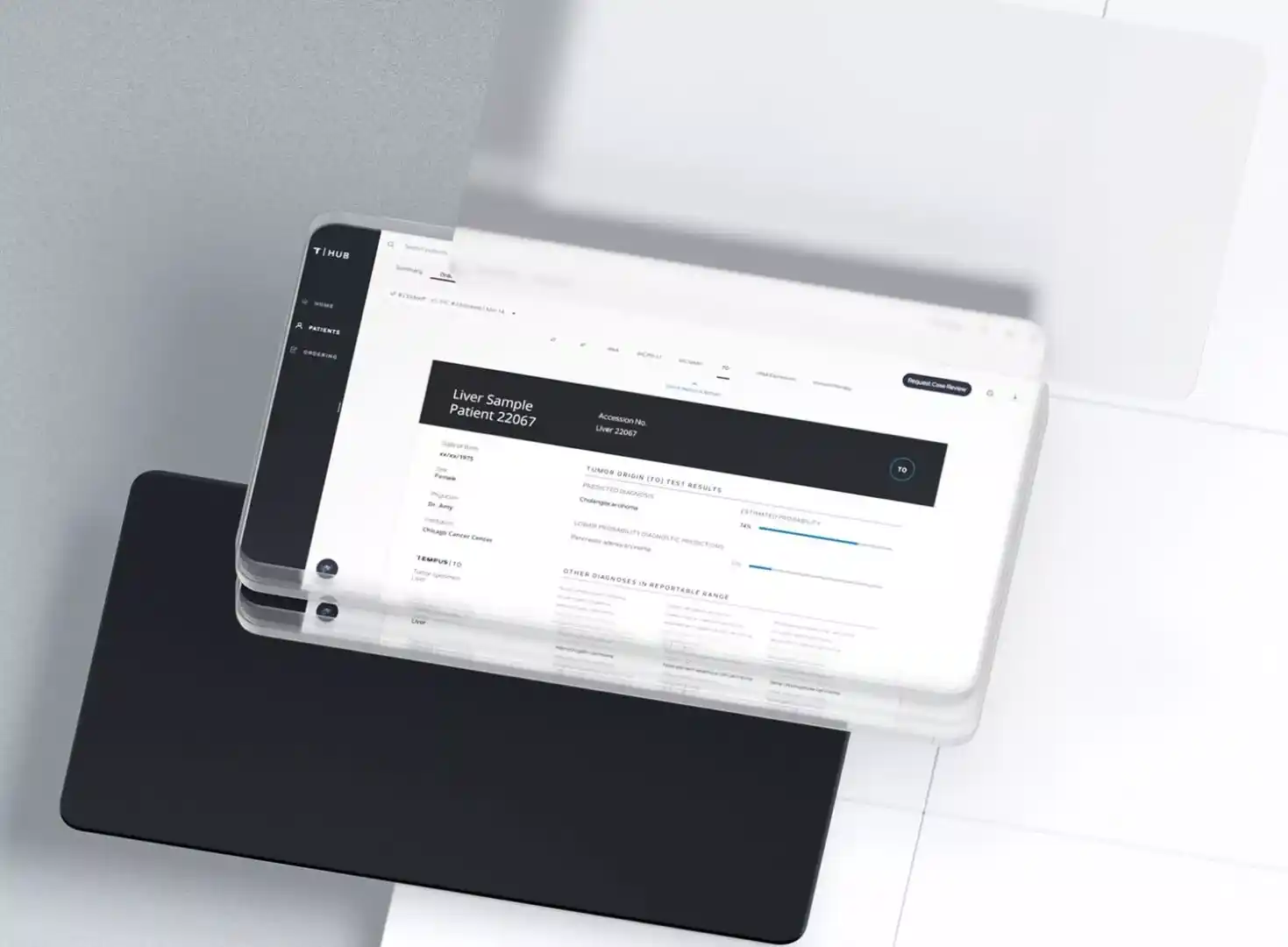Table of Contents
What is Tempus AI?
Tempus AI is a leading company at the forefront of the precision medicine revolution. Founded in 2015, they’ve developed a sophisticated artificial intelligence (AI) platform designed to transform healthcare by unlocking the power of patient data.
Tempus doesn’t directly treat patients but instead provides a platform for healthcare providers and researchers. This platform acts as a central hub, collecting and analyzing vast amounts of complex medical data, including genetic information, electronic health records (EHRs), and lab results. By harnessing the power of AI, Tempus AI can identify patterns and trends within this data that would be impossible for humans to see alone.
The Story Behind Tempus AI
The story of Tempus is one of innovation driven by a desire to improve patient outcomes. The company’s founder and CEO, Eric Lefkofsky, recognized the limitations of traditional healthcare approaches, particularly in cancer treatment. He envisioned a future where patient data could be used to create personalized treatment plans, leading to better results and improved quality of life for patients.
Tempus has grown rapidly since its inception, attracting significant investments and forging partnerships with leading healthcare institutions. Their dedication to data security and patient privacy has also been a key factor in their success.
Key Features of Tempus AI

Tempus AI’s platform offers a range of features designed to empower healthcare professionals and researchers:
- Data Aggregation: Tempus AI collects and integrates data from disparate sources, creating a comprehensive picture of a patient’s health. This includes genetic information, clinical trial data, and real-world evidence.
- AI-powered Analytics: Tempus AI’s AI algorithms analyze vast amounts of data to identify relevant patterns and insights. This allows healthcare providers to make more informed treatment decisions based on a patient’s unique genetic makeup and medical history.
- Clinical Decision Support: Tempus AI provides real-time clinical decision support, suggesting potential treatment options and highlighting potential risks and side effects. This empowers doctors to tailor treatment plans to each patient.
- Research Acceleration: Tempus AI’s platform facilitates research by providing researchers with access to a vast amount of anonymized patient data. This data can be used to develop new diagnostic tools, therapies, and treatment protocols.
How to Use Tempus AI
Tempus AI’s platform is primarily used by healthcare providers and researchers. Here’s a breakdown of how it works in each context:
- For Healthcare Providers: Doctors can leverage Tempus AI to gain deeper insights into their patients’ conditions. The platform can suggest personalized treatment options, identify patients who may benefit from clinical trials, and monitor treatment response. This allows for a more proactive and individualized approach to patient care.
- For Researchers: Researchers can utilize Tempus AI’s platform to access a wealth of anonymized patient data. This data can be used to identify new genetic targets for drug development, understand how diseases progress, and develop more effective treatment strategies.

Impact in Healthcare
Tempus’s platform is already making a significant impact on the healthcare industry. Here are some of the key areas where it’s driving positive change:
- Improved Patient Outcomes: Tempus’s platform allows for more personalized treatment plans, potentially leading to better patient outcomes and improved quality of life.
- Reduced Healthcare Costs: By identifying the most effective treatments for individual patients, Tempus can help to reduce unnecessary healthcare costs.
- Advanced Cancer Care: Tempus plays a crucial role in precision oncology, enabling doctors to target cancer treatments based on a patient’s specific genetic mutations. This can lead to more effective therapies with fewer side effects.
- Accelerated Drug Discovery: Tempus’s platform facilitates research by providing access to a wealth of patient data. This can speed up the progress of creating new medications and treatments.
The Future Potential
While Tempus is already making significant strides in healthcare, its future potential is even more exciting. The platform is continuously evolving, with ongoing research and development aimed at expanding its capabilities and applications.
One area of future potential is the integration of even more diverse data types. As technology advances, Tempus aims to incorporate additional data sources, such as wearable device data, lifestyle information, and environmental factors. This expanded dataset will provide an even more comprehensive view of patient health, enabling more precise and personalized care.
Another promising development is the application of Tempus AI in preventive medicine. By analyzing data from healthy individuals, the platform can identify early indicators of potential health issues, allowing for proactive interventions. This shift from reactive to preventive care has the potential to significantly reduce the incidence and severity of diseases, improving overall population health.
Furthermore, Tempus is poised to play a crucial role in global health initiatives. The platform’s ability to analyze data at scale makes it an invaluable tool for tracking disease outbreaks, monitoring public health trends, and informing policy decisions. By providing real-time insights into population health, Tempus AI can support efforts to address global health challenges more effectively.
Challenges and Considerations
While Tempus offers a powerful set of tools for precision medicine, it’s important to acknowledge some of the challenges and considerations associated with this technology:
- Data Privacy: The vast amount of patient data collected by Tempus AI raises concerns about data privacy and security. The company has robust security measures in place, but ensuring ongoing data protection is crucial.
- Accessibility: Tempus AI’s platform is currently not accessible to all healthcare providers. Widespread adoption will require addressing cost considerations and ensuring equitable access to this technology.
- Algorithmic Bias: The effectiveness of AI algorithms depends on the quality of the data used for training. Tempus AI must ensure its algorithms are unbiased and avoid perpetuating existing disparities in healthcare.
Conclusion
Tempus is a leader in the field of precision medicine, harnessing the power of AI to revolutionize healthcare. Their platform empowers healthcare providers and researchers with valuable insights, leading to more personalized treatment plans, improved patient outcomes, and accelerated drug discovery. As AI technology continues to evolve, Tempus has the potential to further transform healthcare on a global scale. However, addressing data privacy concerns, ensuring accessibility, and mitigating algorithmic bias will be crucial for the responsible and equitable implementation of this technology.
Frequently Asked Questions (FAQs)
What types of data does Tempus AI analyze?
Tempus AI analyzes various data types, including genomic sequencing data, clinical records, radiology images, pathology slides, and more. This comprehensive approach provides a holistic view of patient health and more accurate predictive modeling.
How does Tempus AI improve diagnosis accuracy?
Tempus AI improves diagnosis accuracy by integrating and analyzing diverse data types using advanced machine learning algorithms. This data-driven approach reduces the likelihood of human error and enhances the precision of diagnostic processes, particularly for complex conditions like cancer.
Can Tempus AI be used for preventive medicine?
Yes, one of the future potentials of Tempus is its application in preventive medicine. By analyzing data from healthy individuals, Tempus can identify early indicators of potential health issues, allowing for proactive interventions and reducing the incidence and severity of diseases.
Is Tempus AI user-friendly for healthcare providers?
Absolutely. Tempus is designed with a user-friendly interface that provides intuitive tools and visualizations. This ensures that healthcare professionals with varying levels of technical expertise can easily incorporate Tempus into their practice, enhancing the efficiency of patient care.
How does Tempus AI support research and development?
Tempus supports research and development by providing a vast data repository and advanced analytics. Researchers can use this data to gain insights into disease mechanisms and treatment efficacy, accelerating the development of new therapies and medical technologies.
What is the role of Tempus AI in personalized medicine?
Tempus is crucial in personalized medicine by analyzing individual patient data to generate predictive models. These models help healthcare providers tailor treatment plans to each patient’s unique genetic makeup and clinical profile, improving treatment efficacy and patient outcomes.
How is Tempus AI contributing to global health initiatives?
Tempus contributes to global health initiatives by analyzing data at scale to track disease outbreaks, monitor public health trends, and inform policy decisions. This real-time insight into population health supports efforts to address global health challenges more effectively.
Who founded Tempus AI and why?
Tempus was founded by Eric Lefkofsky, a tech entrepreneur with a passion for improving healthcare outcomes. Inspired by the challenges faced by cancer patients and the inefficiencies in treatment processes, Lefkofsky set out to create a platform that leverages data and AI to revolutionize patient care.
What are the future developments for Tempus AI?
Future developments for Tempus include integrating more diverse data types, such as wearable device data and environmental factors, and expanding its applications in preventive medicine. These advancements aim to provide even more comprehensive and personalized patient care, as well as support global health initiatives.